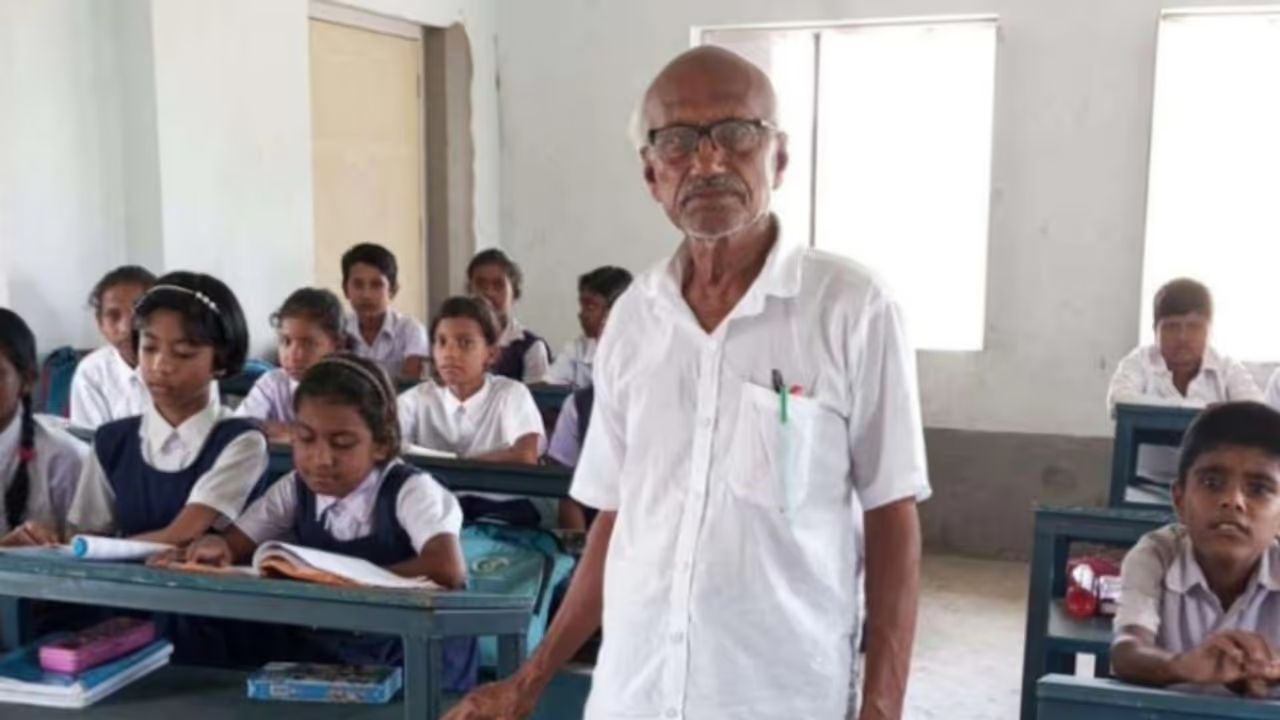According to Ghosh, students at the school are the only reason he still works there even without pay. “The glimmer of hope for a better future in the eyes of the children is all the salary I need to keep teaching,” he said.
Even after retiring ten years ago and well into his seventies, Dwijendra Nath Ghosh still chooses to continue teaching. Ghosh leaves his house every day at 10 a.m. to work from 4 p.m. at the Basantapur Junior High School in the village of Basantpur in the Purba Bardhman region of West Bengal. This is a job for which he receives no money.
In an interview with Better India, Ghosh said, "I am the most ordinary man you will ever interview." Despite his self-perception as average, the things he has done for hundreds of youngsters in his Basantpur are truly remarkable. The 76-year-old, a retired government teacher, has a different approach to retirement: he continues to educate every day.
For the last ten years, the village youngsters have found hope in Ghosh. He has remained in charge of teaching and overseeing Basantapur Junior High School without collecting money, preventing its closure.
When asked about his journey, Ghosh shared, “I grew up in a poor home. There was a time when we struggled to find food. Getting an education when you come from an underprivileged and economically disadvantaged background is the biggest challenge. Turning your life around and achieving something that previous generations could not is very difficult."
He emphasized that he knows how important it is to help others especially when it comes to education, as he grew up in poverty. “I had to work and struggled to get an education. If I don’t work day and night to improve the system for the children of my village, then who will?" he shared.
Ghosh holds a master's degree in political science and English as well as a BEd. “I started working as a teacher in 1975 and retired in 2008 as an assistant teacher at Jamalpur High School,” he said.
Ghosh and five of his buddies had founded a school for underprivileged students, and he was eager to get started in his career, having recently graduated from college. “My spirits were soon dulled by the financial burden I faced due to lack of personal funding. Working for the underprivileged meant lesser income for me. I became a family man and needed to support my family,” he shared.
He reluctantly quit his position at the school and started looking for employment elsewhere. “The school functioned for several years after that but I was not a part of it. It still haunts me that I had to put my needs before the school. But I was sure that I would get another chance to work for the society,” he said.
When Ghosh retired in 2008 and made the decision to go back to his village, opportunity knocked on his door. According to Ghosh, students at the school are the only reason he still works there even without pay. “The glimmer of hope for a better future in the eyes of the children is all the salary I need to keep teaching,” he said.
